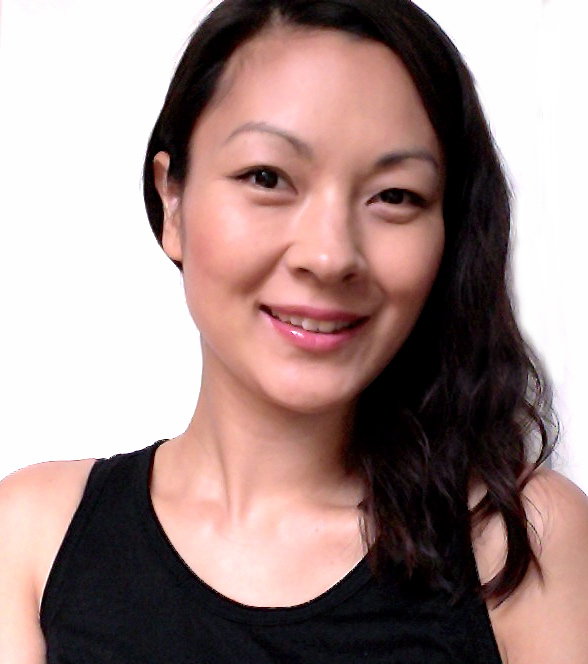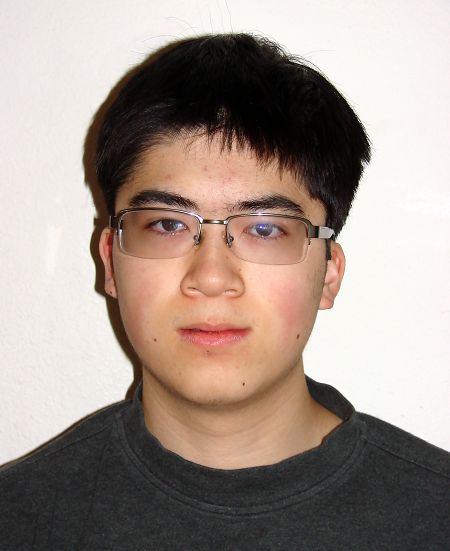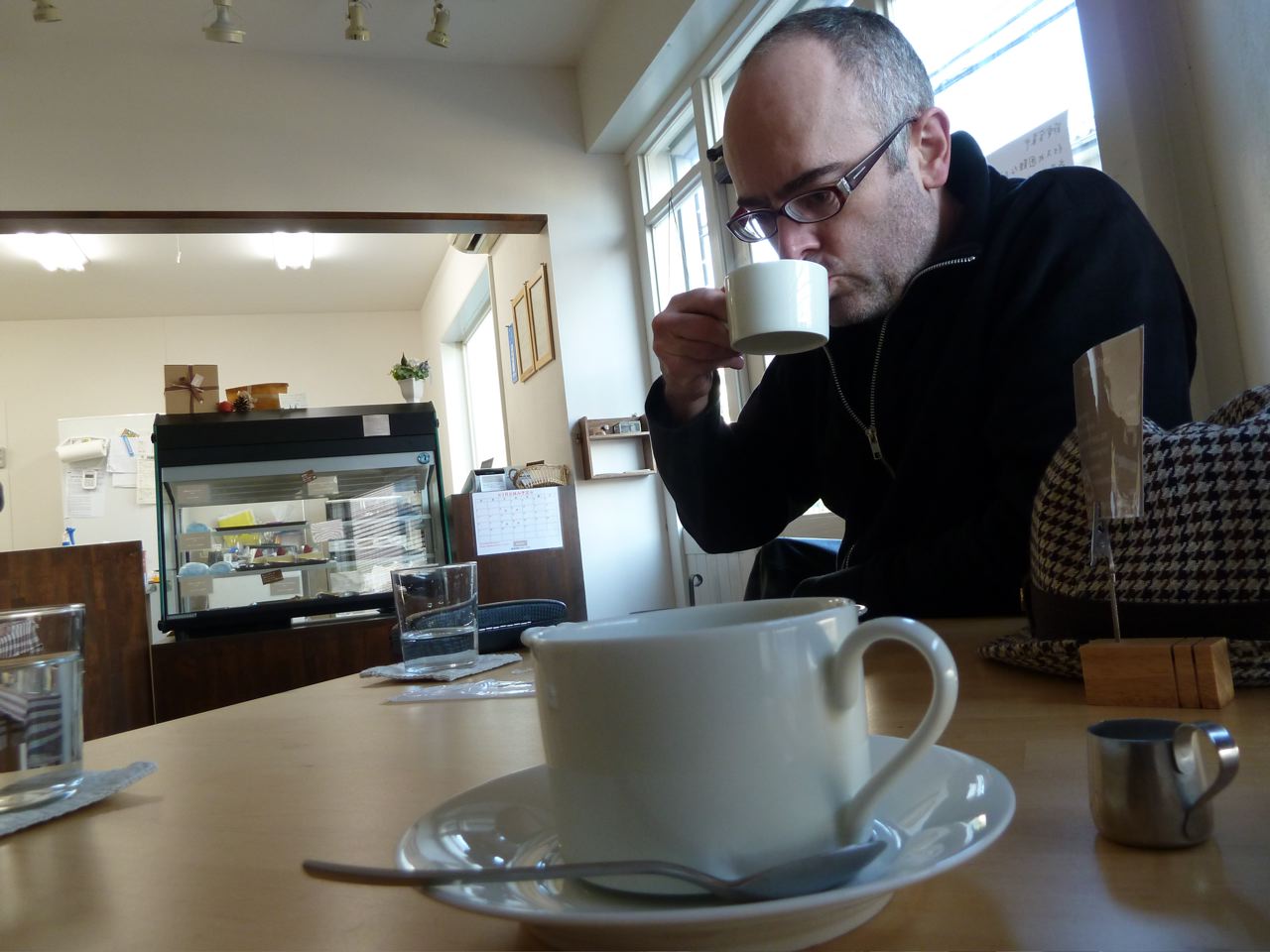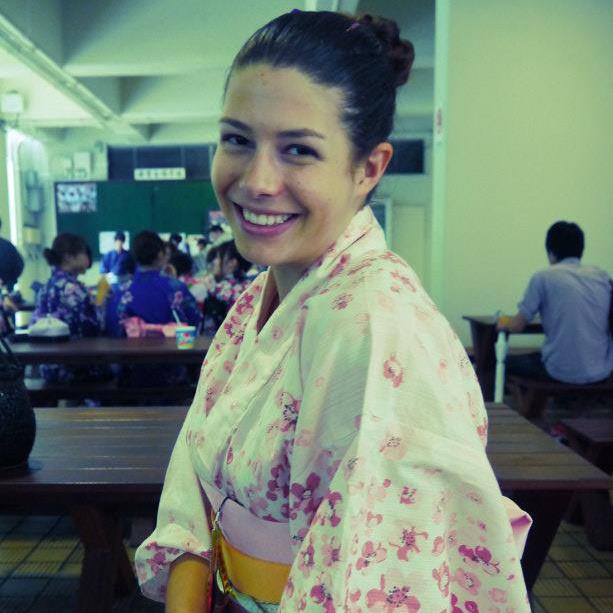Speakers:
David Leheny (PhD, Cornell 1998) is the Henry Wendt III ’55 Professor of East Asian Studies at Princeton University. Among his publications are The Rules of Play: National Identity and the Shaping of Japanese Leisure (Cornell University Press, 2003) and Think Global, Fear Local: Sex, Violence, and Anxiety in Contemporary Japan (Cornell University Press, 2006). He previously taught in the Department of Political Science at the University of Wisconsin and worked on the staff of the Office of the Coordinator for Counterterrorism at the U.S. State Department.
 Marion Wrenn (PhD, NYU) is a media critic and a cultural historian who co-edits the literary magazine Painted Bride Quarterly . She earned her PhD from NYU’s Department of Media, Culture and Communication and has received grants and awards from NYU, the AAUW, and the Rockefeller Archive Center. She is completing her book Inventing Warriors, the story of America’s Cold War initiative to reorient international journalists. Her essays have appeared in Poetics, The American Poetry Review, and elsewhere. She currently teaches writing at the Princeton Writing Program.
Marion Wrenn (PhD, NYU) is a media critic and a cultural historian who co-edits the literary magazine Painted Bride Quarterly . She earned her PhD from NYU’s Department of Media, Culture and Communication and has received grants and awards from NYU, the AAUW, and the Rockefeller Archive Center. She is completing her book Inventing Warriors, the story of America’s Cold War initiative to reorient international journalists. Her essays have appeared in Poetics, The American Poetry Review, and elsewhere. She currently teaches writing at the Princeton Writing Program.
 Hae Joo Kim is a doctoral candidate in Ethnomusicology at Wesleyan University, where she is currently teaching a course on Korean Music. Her dissertation is on the rise of the Korean Wave and the popularity of Korean TV dramas, with a focus on their music soundtracks.
Hae Joo Kim is a doctoral candidate in Ethnomusicology at Wesleyan University, where she is currently teaching a course on Korean Music. Her dissertation is on the rise of the Korean Wave and the popularity of Korean TV dramas, with a focus on their music soundtracks.
Noriko Manabe (PhD, CUNY Graduate Center) is an Assistant Professor of Musicology in the Department of Music and Associated Faculty in East Asian Studies at Princeton University. She is currently writing the monograph, The Revolution Will Not Be Televised: Music, Media, and the Antinuclear Movement in Post-Fukushima Japan (Oxford University Press, forthcoming) and has other book projects on popular music scenes in Japan and on Japanese children’s songs. Her publications on Japanese rap, hip-hop DJs, children’s songs, and Cuban music have appeared inEthnomusicology, Popular Music, Asian Music, Latin American Music Review, Oxford Handbook of Children’s Musical Cultures, among other volumes. She has received fellowships from the Japan Foundation and SSRC/JSPS.
Special Guest Speaker:
Woo Taek Kim is the CEO of Next Entertainment World, one of the top three major media entertainment companies in South Korea. Next Entertainment World focuses on the production of movies, but recently has started expanding into music production (MUSIC&NEW) and musical production (SHOW&NEW). The newly released NEW movie “The Present of Room No. 7” has recently become one of the top three most viewed movies in South Korea. Some key signees to NEW include musicians Vibe, Lyn, MC the Max, and Sweet Sorrow. NEW is currently developing its own idol rock band.
Discussants:
 W. Evan Young is a PhD candidate in Princeton’s East Asian Studies Department. At various points in his academic career, he has studied music, biology and the history of Korea, Japan and China. His current research focuses on the history of science and medicine in East Asia, and his dissertation elucidates the experience of sick people in early modern Japan. Evan’s love for music continues, and he has experienced the “Korean Wave” first hand while living in both Japan and China.
W. Evan Young is a PhD candidate in Princeton’s East Asian Studies Department. At various points in his academic career, he has studied music, biology and the history of Korea, Japan and China. His current research focuses on the history of science and medicine in East Asia, and his dissertation elucidates the experience of sick people in early modern Japan. Evan’s love for music continues, and he has experienced the “Korean Wave” first hand while living in both Japan and China. Reut Harari is a PhD candidate in the History of Science Program at Princeton. Her work focuses on the history of science and medicine in Japan from a transnational perspective. Born and raised in Israel, Reut completed both her BA and MA at Tel-Aviv University. She visited and lived in Japan on a number of occasions and even worked in the Japanese parliament. Her fields of interest are not limited to her research as she finds human imagination and the world in general to be fascinating. Since childhood Reut had a special love for dance and still dreams of one day learning wadaiko.
Reut Harari is a PhD candidate in the History of Science Program at Princeton. Her work focuses on the history of science and medicine in Japan from a transnational perspective. Born and raised in Israel, Reut completed both her BA and MA at Tel-Aviv University. She visited and lived in Japan on a number of occasions and even worked in the Japanese parliament. Her fields of interest are not limited to her research as she finds human imagination and the world in general to be fascinating. Since childhood Reut had a special love for dance and still dreams of one day learning wadaiko. David Boyd is a Ph.D. student in East Asian Studies at Princeton University. He received his M.A. in Contemporary Literary Studies from the University of Tokyo in 2012. His current research focuses on the idea of communality and theatricality in modern Japanese literary history. His other areas of interest include translation studies and Japanese pop music from the eighties to the present, especially Togawa Jun.
David Boyd is a Ph.D. student in East Asian Studies at Princeton University. He received his M.A. in Contemporary Literary Studies from the University of Tokyo in 2012. His current research focuses on the idea of communality and theatricality in modern Japanese literary history. His other areas of interest include translation studies and Japanese pop music from the eighties to the present, especially Togawa Jun. Marissa Smith is a PhD Candidate in Anthropology at Princeton. She has worked in Mongolia since 2007, with occasional trips to Seoul to transit or wait out Mongolian immigration bureaucracy. When not curating Mongolian allusions to Gangnam Style on YouTube, Marissa is writing her dissertation on the intersection of nomadic pastoralism, Soviet industrialism, and contemporary transnationalisms in rituals of everyday production and spectacular management at Mongolia’s Erdenet Mining Corporation.
Marissa Smith is a PhD Candidate in Anthropology at Princeton. She has worked in Mongolia since 2007, with occasional trips to Seoul to transit or wait out Mongolian immigration bureaucracy. When not curating Mongolian allusions to Gangnam Style on YouTube, Marissa is writing her dissertation on the intersection of nomadic pastoralism, Soviet industrialism, and contemporary transnationalisms in rituals of everyday production and spectacular management at Mongolia’s Erdenet Mining Corporation.Panelists:
Exotic Economics and New Cultures:
- “Neoliberalism and the Effects of Plastic Surgery in Korean Pop Music” by Rupa Jogani
- “Assemblages of the Popular: Pluralism, Musical Identities and the Question of the Fourth World” by Bee Vang
- “The Tsugaru-jamisen Field: Toward a General Understanding of the Relationship of Artist, Industry, and Habitus” by Joshua Solomon
- “The Rise of Asian Pop music and the rise of Asian economies- the entertainment industry and national economic development” by Zhijun Xu, Qiaoxi Guo, Yingjuan Wang
- “Drumming and Desire: Cinematic Representations of Taiko” by Michaela Karis
 Rupa Jogani is a senior at the University of Illinois at Urbana-Champaign, studying East Asian Languages and Culture with a minor in European History. She’s a freelance music writer who currently writes for the Canadian-based LYFSTYL Music Magazine. She plans to continue working in some capacity with the music industry on a more global scale. She will be presenting on the effects of plastic surgery in the Korean pop music industry, with emphasis on neo-liberal economics, the implications for the cultural scene, and how the Korean idealization of beauty is projected onto its Western counterparts.
Rupa Jogani is a senior at the University of Illinois at Urbana-Champaign, studying East Asian Languages and Culture with a minor in European History. She’s a freelance music writer who currently writes for the Canadian-based LYFSTYL Music Magazine. She plans to continue working in some capacity with the music industry on a more global scale. She will be presenting on the effects of plastic surgery in the Korean pop music industry, with emphasis on neo-liberal economics, the implications for the cultural scene, and how the Korean idealization of beauty is projected onto its Western counterparts.
 Bee Vang attends Brown University where he is pursuing an independently designed major in “Geopolitical Epistemologies” which synergizes philosophy, cultural studies, political economy, with critical race, gender/sexuality and media studies. Vang spent the last two summers in China investigating rural development, popular and performance cultures, and global economics. Beyond his intellectual pursuits, he also works on projects to advance social justice through media, performance, organizing, and writing, especially on issues related but not limited to Asian America. In particular, Vang is committed to dovetailing the arts with political analysis through film, stage and television acting and production and through media activism. He is currently on hiatus from his studies and is working at two non-profit organizations in New York City: Asian Cinevision/Asian American International Film Festival and WhyHunger.
Bee Vang attends Brown University where he is pursuing an independently designed major in “Geopolitical Epistemologies” which synergizes philosophy, cultural studies, political economy, with critical race, gender/sexuality and media studies. Vang spent the last two summers in China investigating rural development, popular and performance cultures, and global economics. Beyond his intellectual pursuits, he also works on projects to advance social justice through media, performance, organizing, and writing, especially on issues related but not limited to Asian America. In particular, Vang is committed to dovetailing the arts with political analysis through film, stage and television acting and production and through media activism. He is currently on hiatus from his studies and is working at two non-profit organizations in New York City: Asian Cinevision/Asian American International Film Festival and WhyHunger.
 Joshua Solomon is a Ph.D. student in the East Asian Languages and Civilizations program at the University of Chicago. He studies Japanese literature, folk music, and Tsugaru-jamisen. This paper investigates the evolving musical genre of Tsugaru-jamisen by examining the split between “new” and “traditional” performance technique in the context music industry production. Through the application of a variety of metrics to various locations of performance, he interrogates assumptions about tactics employed by musicians in negotiation with their listeners.
Joshua Solomon is a Ph.D. student in the East Asian Languages and Civilizations program at the University of Chicago. He studies Japanese literature, folk music, and Tsugaru-jamisen. This paper investigates the evolving musical genre of Tsugaru-jamisen by examining the split between “new” and “traditional” performance technique in the context music industry production. Through the application of a variety of metrics to various locations of performance, he interrogates assumptions about tactics employed by musicians in negotiation with their listeners.
Yingjuan Wang, Zhijun Xu, and Qiaoxi Guo are from China, and currently are freshmen from Emory University. They will present the business models of S.M. Company and Johnny & Associates, and conclude a typical business model in making world pop stars out of these models.
 Michaela Karis is a junior in the Comparative Literature department at Princeton University, where she is also pursuing a minor in East Asian Studies. In 2011, she spent a semester at Doshisha University in Kyoto, where she first became interested in taiko and other traditional Japanese arts that have bridged into pop culture. Her presentation deals with the connections between drumming, masculinity, and eroticism in diegetic representations of taiko in film. Treating specifically Teshigahara’s Suna no Onna and Kaufman’s Rising Sun, her paper aims to trace the unexpected links that taiko creates between these two otherwise radically different films.
Michaela Karis is a junior in the Comparative Literature department at Princeton University, where she is also pursuing a minor in East Asian Studies. In 2011, she spent a semester at Doshisha University in Kyoto, where she first became interested in taiko and other traditional Japanese arts that have bridged into pop culture. Her presentation deals with the connections between drumming, masculinity, and eroticism in diegetic representations of taiko in film. Treating specifically Teshigahara’s Suna no Onna and Kaufman’s Rising Sun, her paper aims to trace the unexpected links that taiko creates between these two otherwise radically different films.
Transnationalism:
- “Korean Pop: Translation of Culture through Fandoms” by Lindsey Crowe
- “Inclusive Exclusion: How Gangnam Style Broke the Language Barrier” by Alexander Hintenach
- “Global Fans: “Celebrity,” Fan Culture and K-Pop” by Gillian Stone
- “Korean Pop Idols as Transnational Products” by Jennifer Stanley
- “Localization of Korean Pop Music in Hong Kong” by Phoebe Chau
Lindsey Crowe is an undergraduate candidate from Bryn Mawr College pursuing her English and Film Studies Major. Before attending Bryn Mawr she had the opportunity to study at an international boarding school in Southern California. It was during this time her interest in non-English media and music flourished, which included an interest in Korean Pop. She furthered her interest into a personal research project exploring other Asian cultures through music. Her presentation topic is about the translation of Korean culture to other countries through the genre of Korean Pop music.
Alexander Hintenach is graduating from Penn State’s Erie campus with a Bachelor’s degree in Communication this May. His acquaintance with the field began in 2006, when he visited Antarctica. The experience helped form his interests in international relations and video production. Since then, Alexander has applied his video skills at NFL Films and in the California aerospace industry. Currently, he studies language and rhetoric, with a keen eye for macroeconomics and global politics. Alexander’s interests have led to the creation of his paper “Inclusive Exclusion: How Gangnam Style Broke the Language Barrier”, which analyses the recently viral “Gangnam Style” music video. The paper investigates what the video means in different cultural contexts, using the Communication discipline of Semiotics.
 Gillian “Raye” Stone is a senior in the Anthropology/Asian Studies double major with a music minor at Skidmore College. Her academic interests include elements of fusion in contemporary Japanese music (i.e. using traditional instruments with modern ones to create new sounds) and using K-Pop as a lens to study global fan culture. Her presentation for this conference focuses on people’s sense of identity and consumption practices in the K-Pop fan-culture community. She will use her own personal ethnographic research to address questions such as: what does it mean to be a “fan?” Who is considered a “fan” of K-Pop? How does consumption affect one’s sense of identity?
Gillian “Raye” Stone is a senior in the Anthropology/Asian Studies double major with a music minor at Skidmore College. Her academic interests include elements of fusion in contemporary Japanese music (i.e. using traditional instruments with modern ones to create new sounds) and using K-Pop as a lens to study global fan culture. Her presentation for this conference focuses on people’s sense of identity and consumption practices in the K-Pop fan-culture community. She will use her own personal ethnographic research to address questions such as: what does it mean to be a “fan?” Who is considered a “fan” of K-Pop? How does consumption affect one’s sense of identity?
 Jennifer Stanley was born and raised in Montgomery County, Maryland and graduated from Clarksburg High School in 2012. This year, she is a freshman attending Towson University in Towson, Maryland and is pursuing a Bachelor’s degree in English with certification in Secondary Education. She hopes to obtain a Master’s degree in Education prior to teaching English as a foreign language in South Korea. Her research paper will discuss the process through which K-Pop idols are being manufactured as products in South Korea and provide some speculation as to the reception of this transnational process.
Jennifer Stanley was born and raised in Montgomery County, Maryland and graduated from Clarksburg High School in 2012. This year, she is a freshman attending Towson University in Towson, Maryland and is pursuing a Bachelor’s degree in English with certification in Secondary Education. She hopes to obtain a Master’s degree in Education prior to teaching English as a foreign language in South Korea. Her research paper will discuss the process through which K-Pop idols are being manufactured as products in South Korea and provide some speculation as to the reception of this transnational process.
Phoebe Chau – TBA
Gender:
- “Sexualized Backlash against K-pop” in Japan by Tetsumi Yamaguchi
- “How Perceptions of Femininity are influenced by pop artists” by Xinyan Peng
- “Kawaii in Japanese Popular Culture” by Cassandra Newcomb
- “K-pop stars influence on Korean and Danish fans view on plastic surgery and beauty ideal: A comparative study” by Jeannie Wagner
Tetsumi Yamaguchi – TBA
Xinyan (Sunny) Peng is a junior student from University of Virginia, double majoring in Anthropology and Economics. Originally from Hubei, a province in southern China, Sunny has been fascinated by East Asian popular culture, both for fun and for academic interest. For example, she is currently doing a distinguished major research in anthropology, studying the gender and romance in South Korean romantic dramas and their audience within different ethnic groups. In this conference, she will be presenting the female imagery and its transformation in Chinese and Korean popular music.
Cassandra Newcomb, from Salisbury, Maryland, is currently a junior at Salisbury University, pursuing a degree in Cultural Anthropology. Already having an interest in Japanese street fashion and the global phenomenon of cuteness, her presentation delves into how the concept of “kawaii” is used by Japanese singers and corporations, both in the exporting traditional ideas of gender and being used as a method of social rebellion.
 Jeannie Wagner Hansen studies a BA in Korean Studies in the Department of Cross-Cultural and Regional Studies at University of Copenhagen, Denmark. Her research includes ‘Western influences on South Korean Beauty Ideals and Plastic Surgery’ and ‘Representation of Women in Contemporary Korean Movies’. She will be presenting her current research about ‘K-pop stars influence on Korean and Danish Fans view on Plastic Surgery and Beauty Ideals’. The presentation attempts to shed light on how the physical appearance of K-pop stars influence the view on plastic surgery and beauty ideals among Korean and Danish K-pop fans. Exploring this issue in a comparative analysis of Danish and Korean K-pop fans, the research includes in-depth interviews of Danish and Korean K-pop fans and content analysis of Danish and Korean K-pop fan blogs.
Jeannie Wagner Hansen studies a BA in Korean Studies in the Department of Cross-Cultural and Regional Studies at University of Copenhagen, Denmark. Her research includes ‘Western influences on South Korean Beauty Ideals and Plastic Surgery’ and ‘Representation of Women in Contemporary Korean Movies’. She will be presenting her current research about ‘K-pop stars influence on Korean and Danish Fans view on Plastic Surgery and Beauty Ideals’. The presentation attempts to shed light on how the physical appearance of K-pop stars influence the view on plastic surgery and beauty ideals among Korean and Danish K-pop fans. Exploring this issue in a comparative analysis of Danish and Korean K-pop fans, the research includes in-depth interviews of Danish and Korean K-pop fans and content analysis of Danish and Korean K-pop fan blogs.
Technology and Digital Mediums:
- “Hatsune Miku” by Chad Ralston
- “Show me Your Moves!: Japanese Music and Dance as a Global Culture through Dance Dance Revolution” by Edward Ly
- “Music in Anime: Unveiling It Messages” by Elizabeth Nelson
- “Digital Divas and Singing Computers – Entering the Online World of Vocaloid” by Anica Odell-Smedley
 Chad Ralston is an undergraduate candidate at Salisbury University, and majors in both Sociology and Cultural Anthropology. Having already harbored an interest in the social construction of reality, it was natural to wonder about how people might relate in a human way to a virtual persona. His presentation will explore the ways in which Crypton Future Media creates and sells the Vocaloid “Hatsune Miku,” and how consumers relate to, and are affected by, their interactions with her.
Chad Ralston is an undergraduate candidate at Salisbury University, and majors in both Sociology and Cultural Anthropology. Having already harbored an interest in the social construction of reality, it was natural to wonder about how people might relate in a human way to a virtual persona. His presentation will explore the ways in which Crypton Future Media creates and sells the Vocaloid “Hatsune Miku,” and how consumers relate to, and are affected by, their interactions with her.

Edward Ly, a native of Oregon and the city of Portland, is a sophomore at the Robert D. Clark Honors College at the University of Oregon and is currently double majoring in mathematics his current research particularly deals with music games found in Japanese arcades, which are still very popular in the country to this day. His presentation will focus on the most and Japanese. His biggest hobbies include listening to music and playing video games, and popular of these games, Dance Dance Revolution, and how the variety of music and long-standing gameplay, among other factors, have shaped the culture surrounding the game and its relative success worldwide.
Elizabeth Nelson – TBA
Anica Odell-Smedley is a senior at Skidmore College in Saratoga Springs, NY. She grew up in Berkeley, California and has always harbored a love for Japanese culture, specifically music. Her project is an exploration into the internet culture of Vocaloid, the dilemmas it presents to the world of music, and the potential creative power of its online community.



